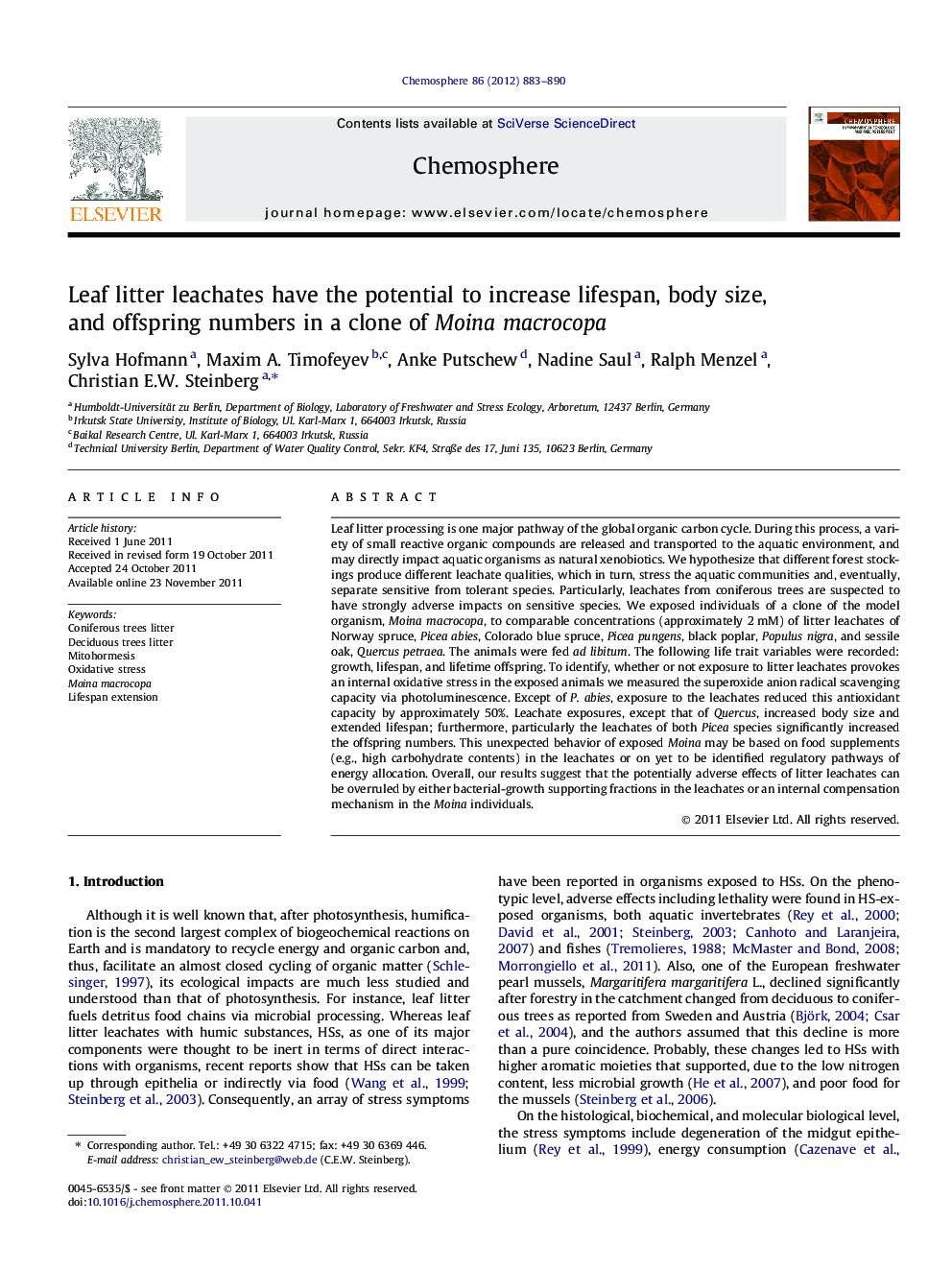| Article ID | Journal | Published Year | Pages | File Type |
|---|---|---|---|---|
| 4409864 | Chemosphere | 2012 | 8 Pages |
Leaf litter processing is one major pathway of the global organic carbon cycle. During this process, a variety of small reactive organic compounds are released and transported to the aquatic environment, and may directly impact aquatic organisms as natural xenobiotics. We hypothesize that different forest stockings produce different leachate qualities, which in turn, stress the aquatic communities and, eventually, separate sensitive from tolerant species. Particularly, leachates from coniferous trees are suspected to have strongly adverse impacts on sensitive species. We exposed individuals of a clone of the model organism, Moina macrocopa, to comparable concentrations (approximately 2 mM) of litter leachates of Norway spruce, Picea abies, Colorado blue spruce, Picea pungens, black poplar, Populus nigra, and sessile oak, Quercus petraea. The animals were fed ad libitum. The following life trait variables were recorded: growth, lifespan, and lifetime offspring. To identify, whether or not exposure to litter leachates provokes an internal oxidative stress in the exposed animals we measured the superoxide anion radical scavenging capacity via photoluminescence. Except of P. abies, exposure to the leachates reduced this antioxidant capacity by approximately 50%. Leachate exposures, except that of Quercus, increased body size and extended lifespan; furthermore, particularly the leachates of both Picea species significantly increased the offspring numbers. This unexpected behavior of exposed Moina may be based on food supplements (e.g., high carbohydrate contents) in the leachates or on yet to be identified regulatory pathways of energy allocation. Overall, our results suggest that the potentially adverse effects of litter leachates can be overruled by either bacterial-growth supporting fractions in the leachates or an internal compensation mechanism in the Moina individuals.
► Three of four leaf litter leachates caused oxidative stress in exposed cladoceran Moina macrocopa. ► Although stressed, the animals responded with increased body size and expanded lifespan upon. ► In contrast to expectation, leachates of two Picea species significantly increased the offspring numbers.
